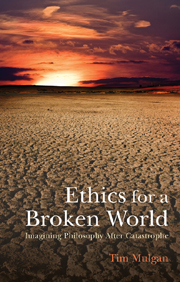Introductory lecture: Philosophy in the age of affluence
Summary
Welcome to “Ancient Philosophy III: American and European philosophy in the age of affluence”. I shall be your facilitator for this module. Today, I introduce our topic, and situate it in historical ti me and logical space.
Before we look at the philosophy itself, we first explore its historical context. The age of affluence lies immediately before the dark times from which our present global civilizations are still emerging. It was a brief period, lasting only some two or three centuries, but a crucial time in human history. This was the time when humans caused catastrophic climate change: the age of the breaking of the world. Although not so distant in purely temporal terms – ending only a handful of generations ago – the affluent age seems very remote from our own. Affluent people do seem to live in another world. This most recent historical epoch is also the most inaccessible.
Our task is to understand affluent philosophy, and to apply it to our own times. We must imagine the affluent world, and ask how an affluent philosopher would see our world. I will employ two imaginary time-travellers: one who travels back from our own time to the affluent age, and an affluent traveller transported forward to our world.
As this is not a course in history or comparative anthropology, we focus on very general differences between the age of affluence and our own world.
- Type
- Chapter
- Information
- Ethics for a Broken WorldImagining Philosophy after Catastrophe, pp. 1 - 16Publisher: Acumen PublishingPrint publication year: 2011



